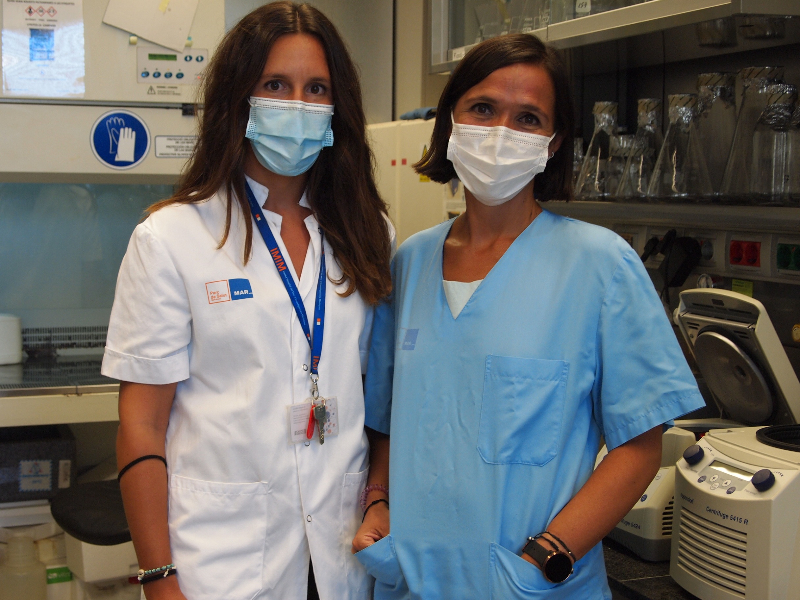
18/11/2021 - Press release
Doctors and researchers from the Infectious Diseases and Pharmacy Departments at Hospital del Mar, the Hospital del Mar Medical Research Institute (IMIM-Hospital del Mar) and Hospital Universitari Son Espases have confirmed that the antibiotic ceftazidime/avibactam, approved in the United States in 2015, when used in combination with other antibiotics is an effective strategy for treating infections caused by variants of the Pseudomonas aeruginosa bacterium that are resistant to all other treatments, including ceftazidime/avibactam on its own. The work has been published in the journal Microbiology Spectrum and is one of the first to validate this approach for treating antibiotic-resistant variants of the bacterium.
Pseudomonas aeruginosa is present all over the world, in different strains. Its ability to resist existing antibiotic treatments makes it one of the main concerns in this field. In fact, 10-40% of infections caused by this bacterium in Spain are caused by variants that do not respond to available drugs. It is an opportunistic organism, which mainly attacks immunocompromised people, and can cause mild to very serious problems, including pneumonia, cardiovascular disease and sepsis. The World Health Organisation (WHO) has identified resistance to antibiotic treatment as a major threat to global health, food health and development, and estimates that 700,000 people die each year from treatment-resistant infections, a figure that could reach ten million by 2050 if the trend of antibiotic misuse is not reversed.

Better together
The work, carried out on in vitro samples of seven variants of the bacterium, including the one predominant in Catalonia, consisted of testing how effective ceftazidime/avibactam is on its own as well as in combination with other antibiotics. "The aim is to optimise treatments using the tools we already have available", explains Dr. Milagro Montero, first author of the study and a consultant in the Infectious Diseases Department at Hospital del Mar. "In this case, we are dealing with bacteria that are resistant to all treatments, and we analysed how an antibiotic to which they show resistance, when used in combination with another, can eliminate them", she adds.
According to the results, "In more than 80% of the variants resistant to ceftazidime/avibactam, these combinations work and, in one of them, the combination eliminates all the variants resistant to the reference antibiotic", highlights Dr. Montero. The combination of ceftazidime/avibactam with amikacin or aztreonam achieved an efficacy of 85.7%, which reached 100% for the combination with colistin. In contrast, the meropenemo trial had an efficacy of less than 30%.
These results have led the researchers to call for a clinical trial to evaluate the efficacy of these antibiotic combinations in humans. For the time being, the study provides an alternative treatment for patients with no other alternative.
Reference article
Montero MM, Domene Ochoa S, López-Causapé C, Lque S, Sorlí L, Campillo N, López Montesinos I, Padilla E, Prim N, Angulo-Brunet A, Grau S, Oliver A, Horcajada JP. 2021. Time-Kill Evaluation of Antibiotic Combinations Containing Ceftazidime-Avibactam against Extensively Drug-Resistant Pseudomonas aeruginosa and Their Potential Role against Ceftazidime-Avibactam-Resistant Isolates. Microbiol Spectr 9:e00585-21. https://doi.org/10.1128/Spectrum.00585-21
© Institut Hospital del Mar
d'Investigacions MèdiquesLegal Notice and Privacy Policy | Cookie Policy | Site Index | Accessibility | Find Us | Contact